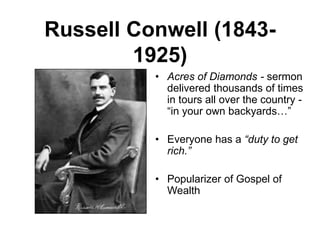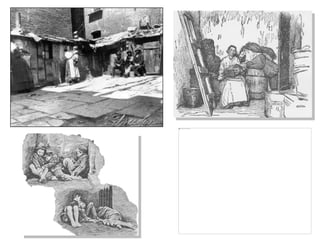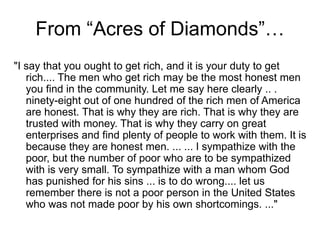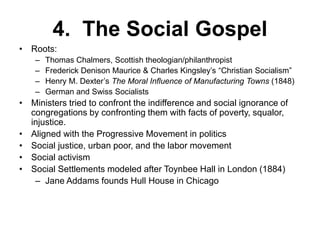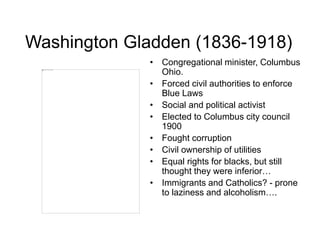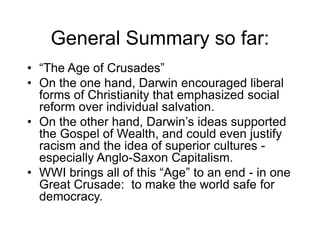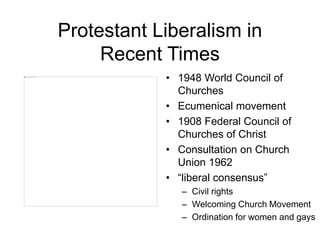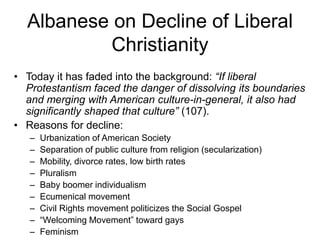The document provides background on the Puritan vision and struggle in New England, covering their theological roots in Calvinism, the political conditions they faced in England under kings like James I and Charles I, and key figures like Jean Calvin and Oliver Cromwell. It discusses how Puritans sought to purify the Church of England of Catholic influences and establish a godly commonwealth in the New World, fleeing persecution and forming settlements like the Plymouth and Massachusetts Bay colonies in the early 1600s.

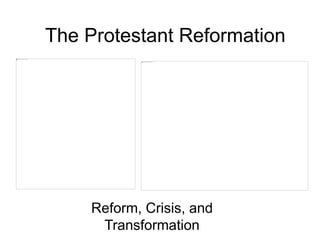
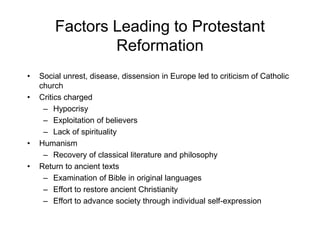
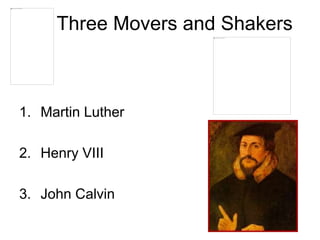
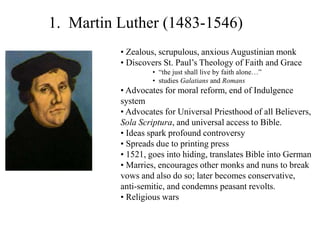
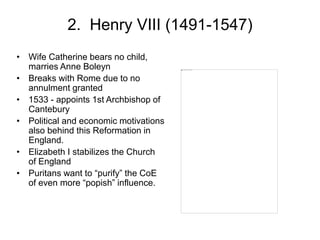
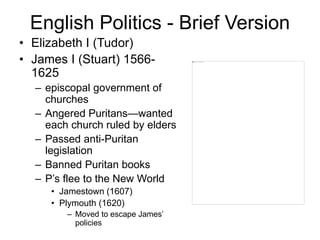
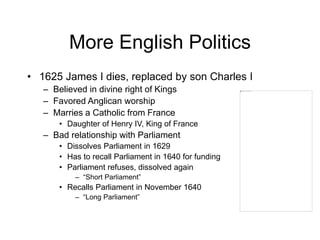
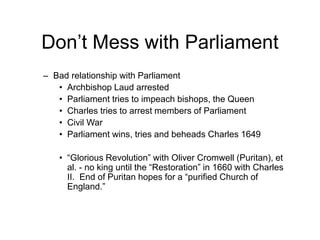
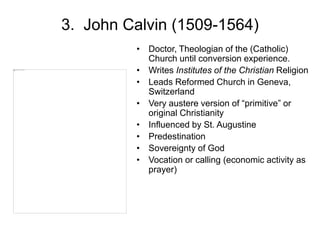
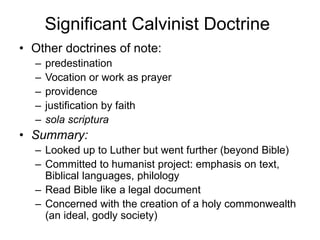
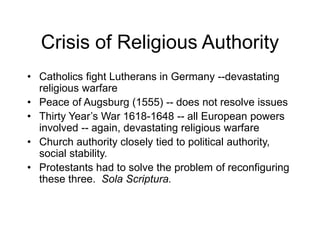
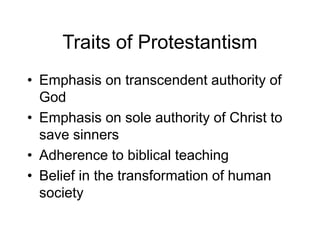
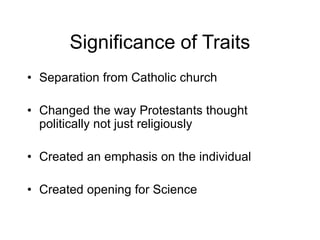
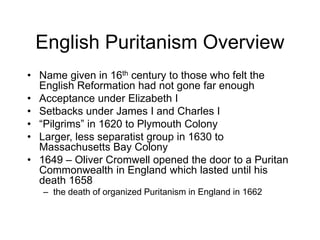
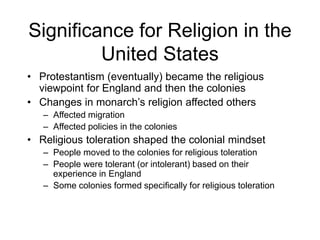
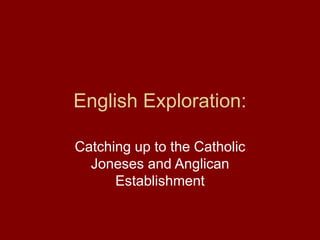
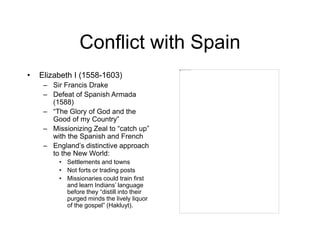
![Promotion Campaign
• Richard Hakluyt the Younger
(1552-1616): “Let’s not waste time
arguing about who has a right to what, let
us go out, lay claim to the land, and take
it as our own. This enterprise may stay
the Spanish King from flowing over all the
face of that vast [land] of America, if we
seat and plant there in time, in time I say.”
• Samuel Purchas (1577-1626):
writes Purchas his Pilgramage in 1613 -
huge 4 volume history of the world with
English clerical religion on top of it all, for
all other “worn-out rites or present
irreligious religions” would all be washing
in the “purer stream of sacred baptism.”](https://image.slidesharecdn.com/ch4puritansandliberaltradition-200825102717/85/Ch-4-puritans-and-liberal-tradition-19-320.jpg)
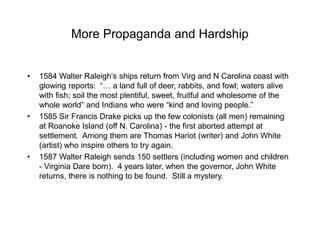
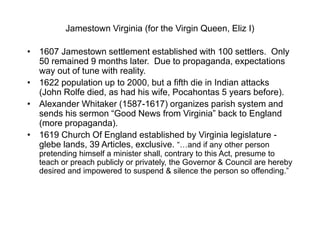
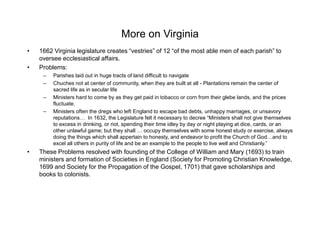
![Challenges to the C of E in Virginia
(1700’s)
• Dissenters tended to settle in the
foothills - furthest away from the
Tidewater parishes.
• Presbyterians: Samuel Davies
(1723-1761) arrives from
Pennsylvania in 1749, but can not
minister legally and complains that
Willaim and Mary’s 1689
Declaration of Religious Toleration
was not being honored in Virginia.
• London-based Board of Trade
advised that “a toleration and free
exercise of religion is so valuable a
branch of true liberty and so essential to
the improving and enriching [of] a trading
nation, it should ever be held sacred to
His Majesty’s Colonies”
• Davies evangelized widely among
whites and blacks (100,000 in 1750
- over 40% of population).](https://image.slidesharecdn.com/ch4puritansandliberaltradition-200825102717/85/Ch-4-puritans-and-liberal-tradition-23-320.jpg)
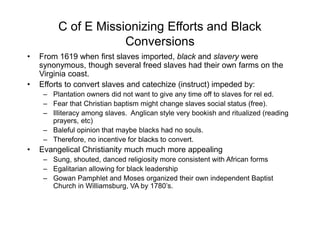
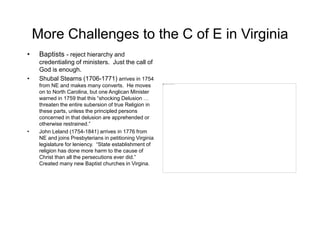
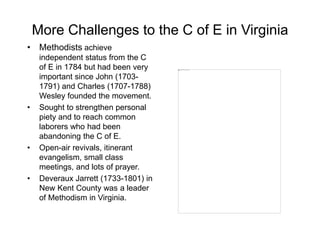
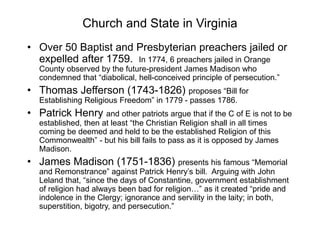
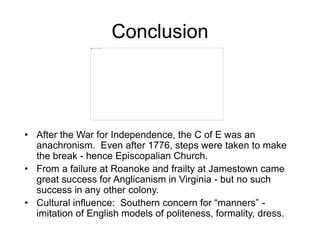
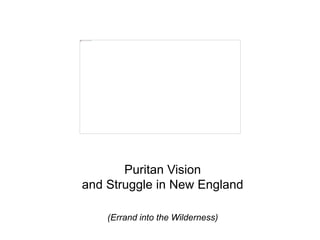
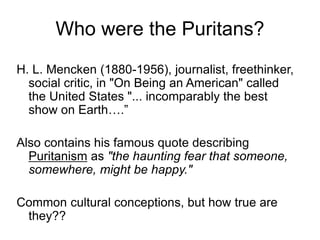

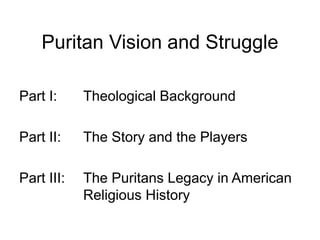
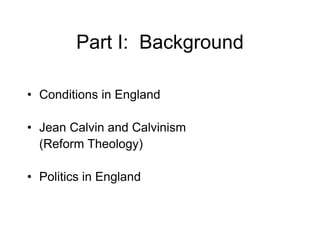
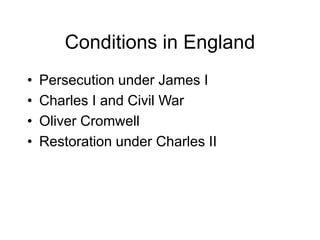
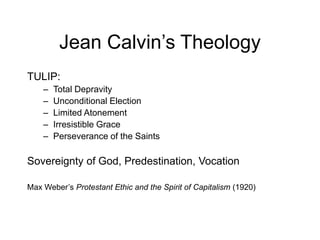
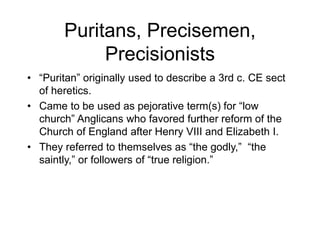
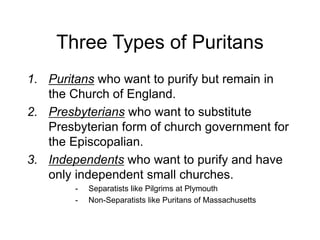
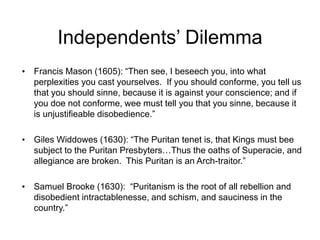
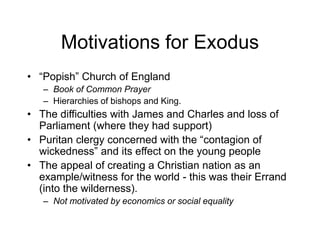
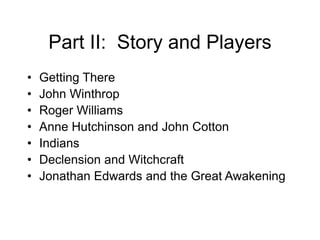
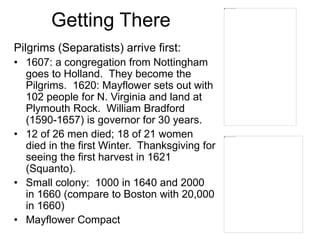
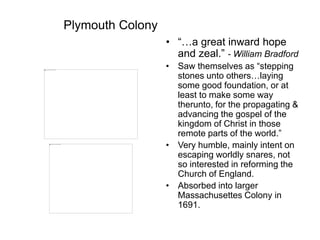
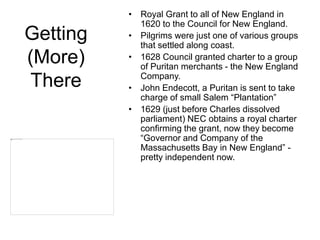
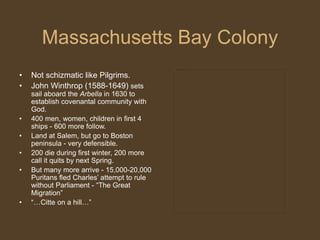
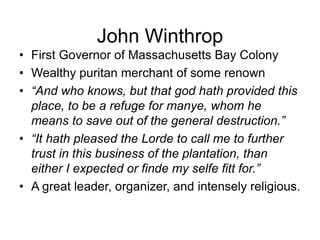
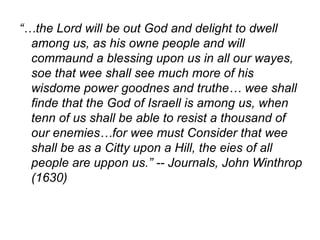
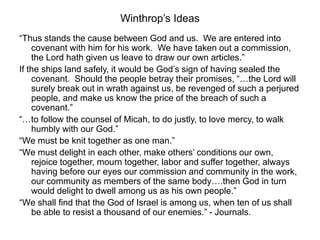
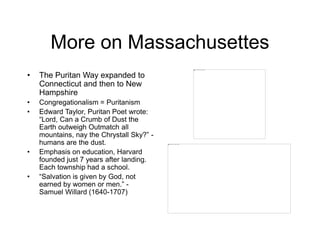
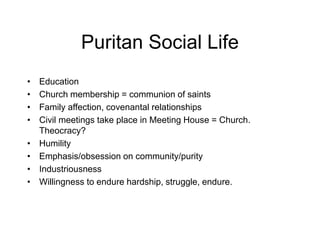
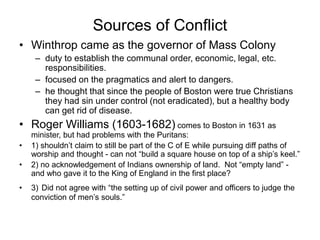
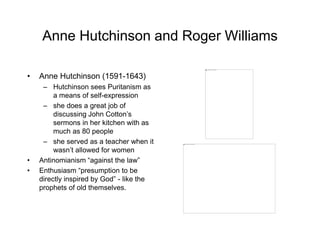
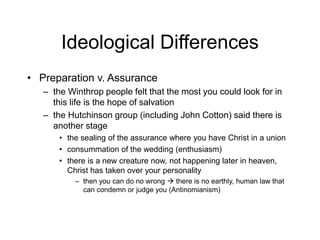
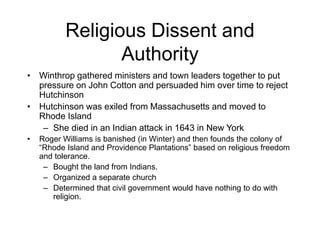
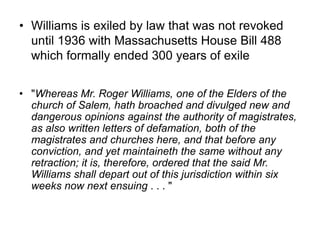
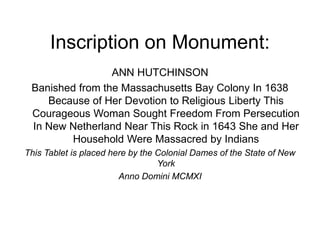
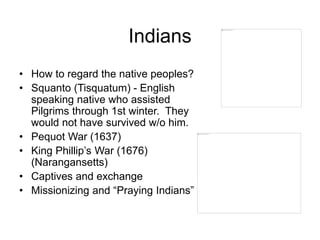
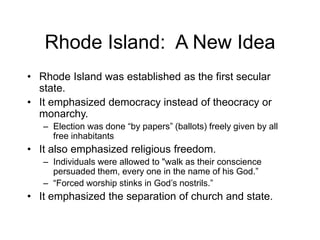
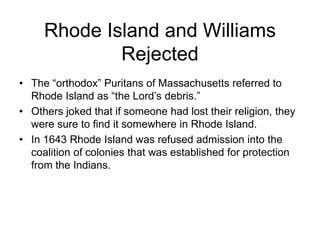
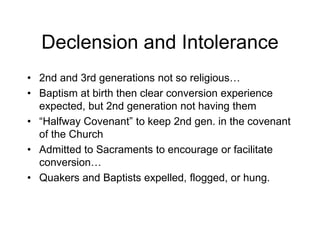
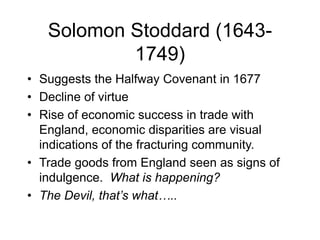
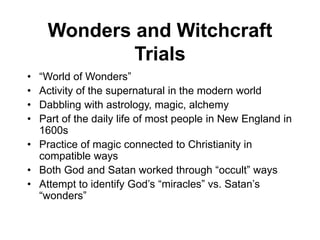
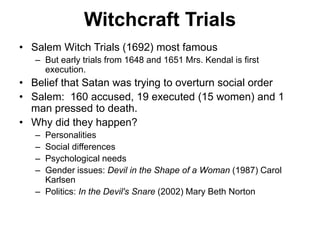
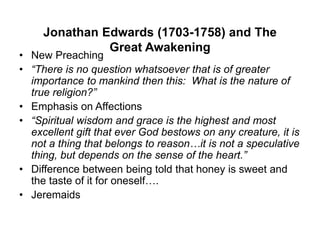
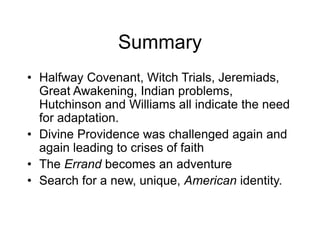
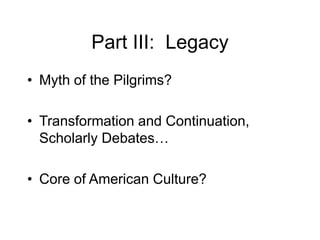
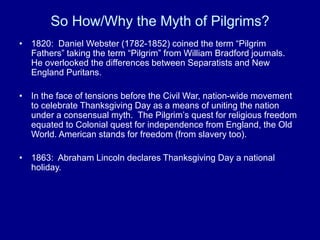
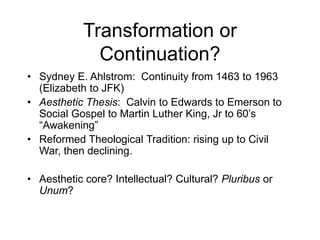
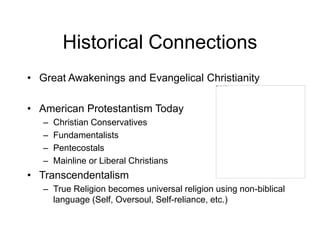
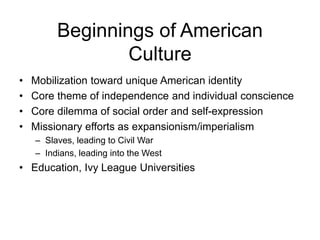
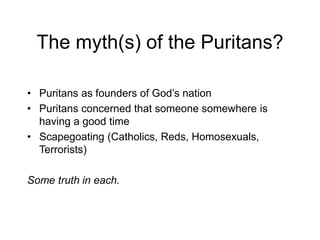
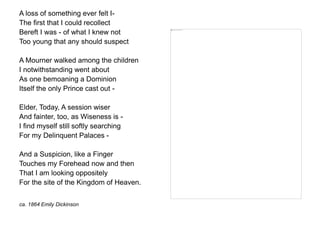
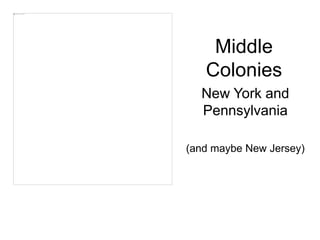

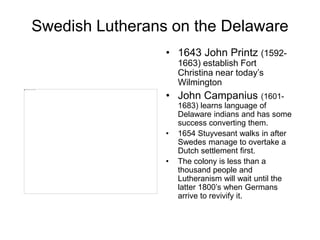
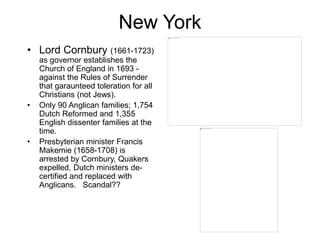
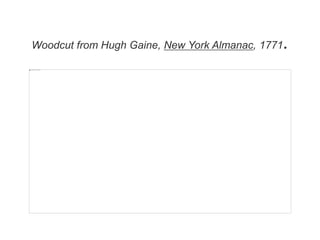


![Frame of Government
• A home, not only for Quakers,
“but to all persons living in this
province who confess and
acknowledge the one almighty
and eternal God to be the
creator…agreeing to live
peaceably and justly in civil
society [would] in no ways be
molested or prejudiced for their
religious persuasion or practice
in matters of faith and worship,
nor shall they be compelled at
any time to frequent or maintain
any religious worship, place, or
ministry whatever.”
“with your love and
consent”](https://image.slidesharecdn.com/ch4puritansandliberaltradition-200825102717/85/Ch-4-puritans-and-liberal-tradition-79-320.jpg)
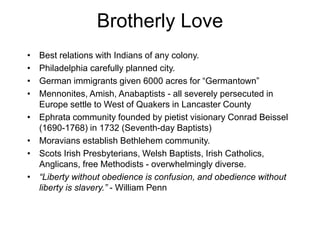
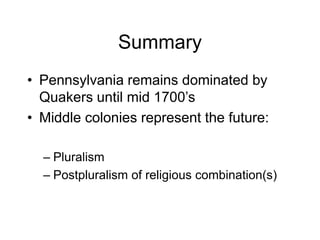
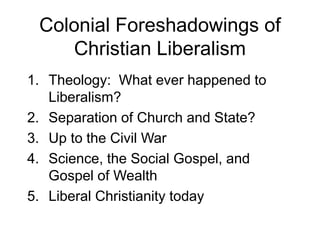
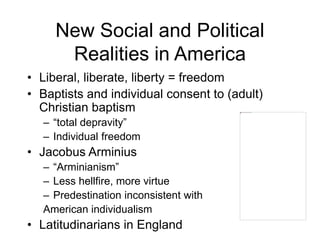
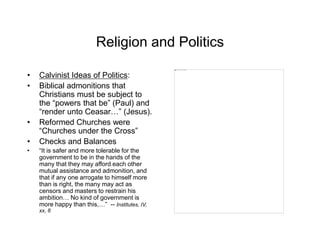
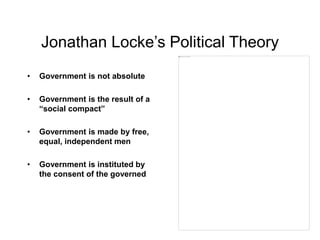
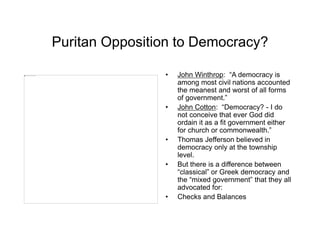
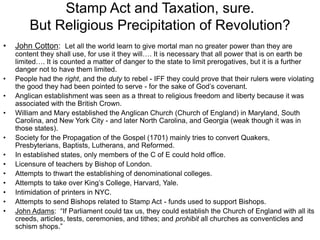
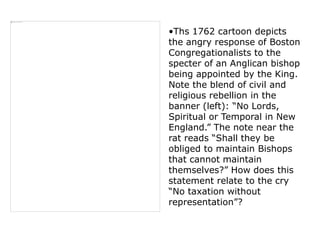
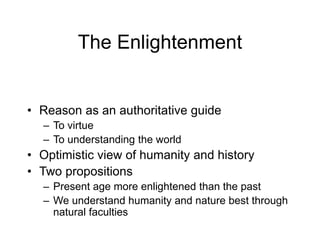
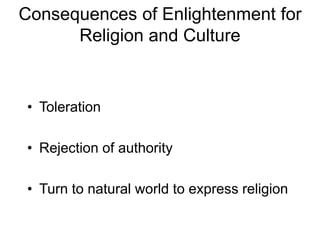
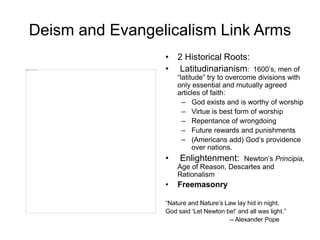
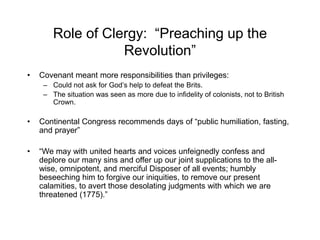
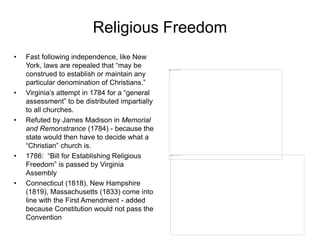
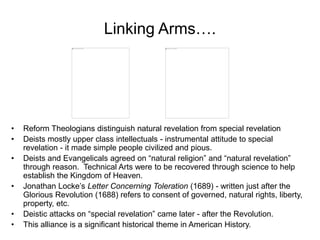
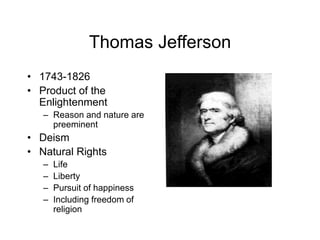
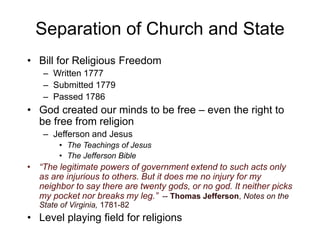
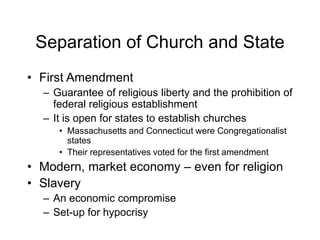
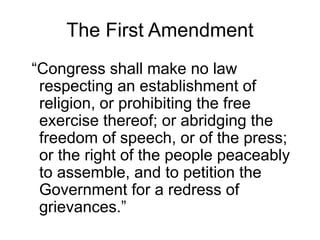
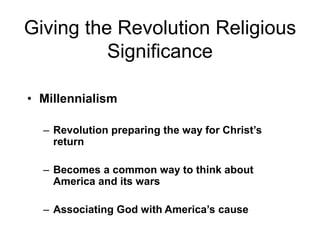
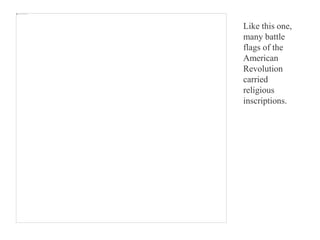
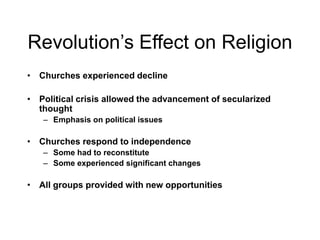

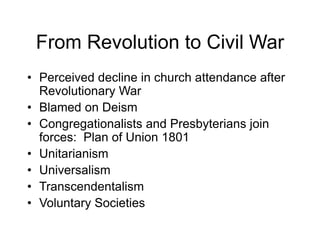

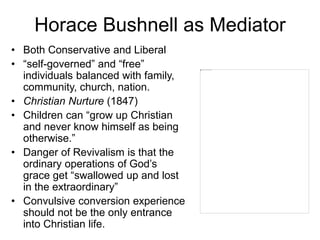
![Horace Bushnell
(1802-1876)
• Social context can transmit evil as well as
virtue. This prepares the way for New and
Liberal Theology.
• “…nothing was ever achieved in the way of
great and radical change without some
degree of excitement; and if any one
expects to carry on the cause of salvation
by a steady rolling on the same dead level,
and fears continually lest his axles wax hot
and kindle into a flame [that person] is too
timorous to hold the reins of the Lord’s
chariot.”
• Revivalism reconciled to ordered life of
family, church and community.
• Trinity applies to revealed God, not to the
ultimate reality of God (Unitarian critique is
resolved; nature and supernatural bridged,
but not conflated)](https://image.slidesharecdn.com/ch4puritansandliberaltradition-200825102717/85/Ch-4-puritans-and-liberal-tradition-106-320.jpg)

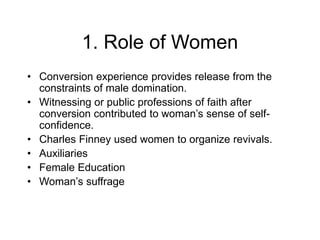
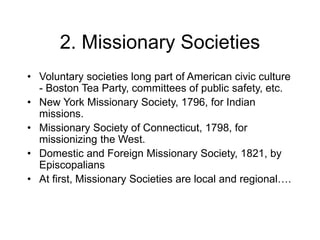
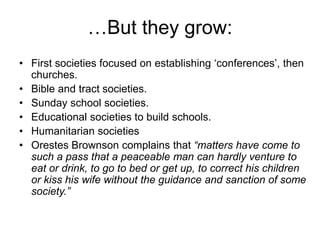
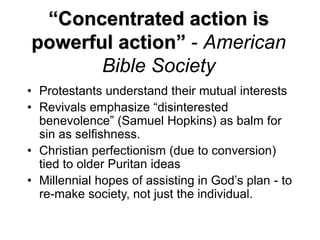
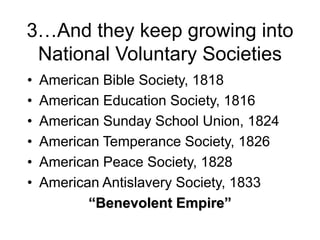
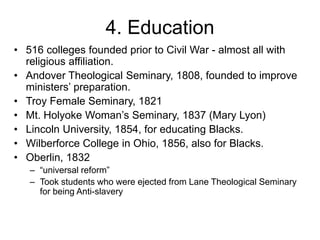









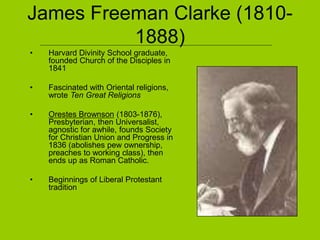
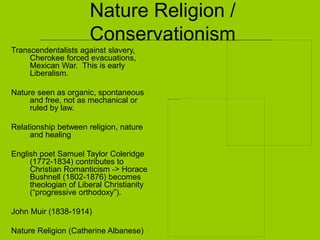



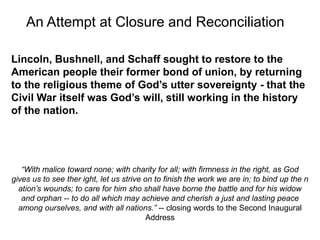
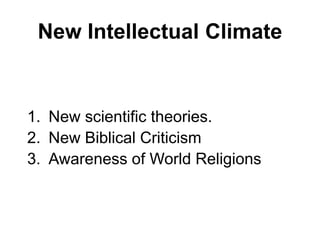

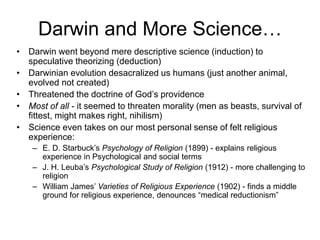






![1. Protestant Liberalism
• Henry Ward Beecher (Plymouth Congregational
Church in Brooklyn NY 1847-1887 and easily the
most prominent preacher of his time) warns that
ministers can not afford to become “apostles of
the dead past [by letting] the development of truth
run ahead of them.”
• “If ministers do not make their theological
systems conform to the facts as they are; if they
do not recognize what men are studying, the time
will not be far distant when the pulpit will be like a
voice crying in the wilderness…The providence of
God is rolling forward in a spirit of investigation
that Christian ministers must meet and join.”
• Many seminaries started adding elements of
science to their curricula.](https://image.slidesharecdn.com/ch4puritansandliberaltradition-200825102717/85/Ch-4-puritans-and-liberal-tradition-138-320.jpg)

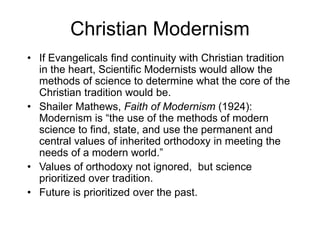

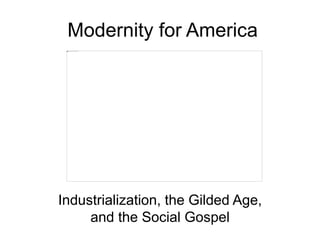
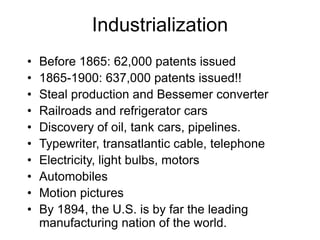
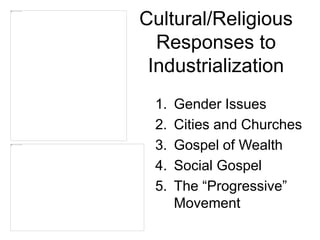
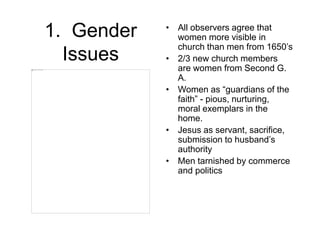
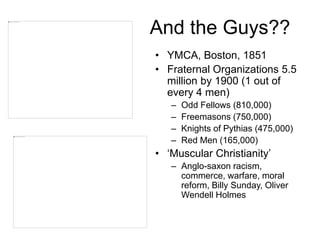

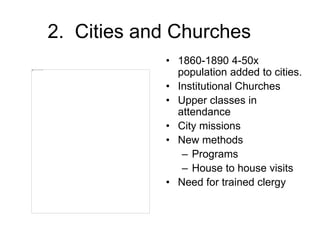
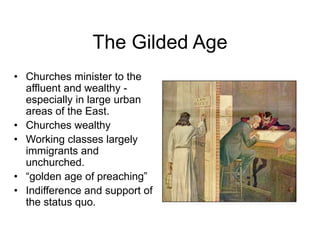
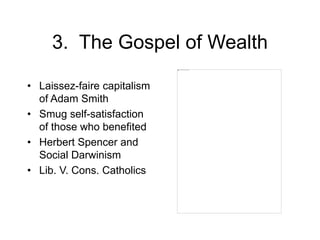

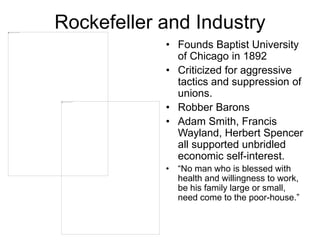
![Andrew Carnegie’s Gospel of
Wealth
• June 1889 issue of North
American Review: “the true
gospel concerning wealth
[which will] solve the problem of
the rich and the poor.”
• “sacredness” of private
property, free competition, and
free accumulation of wealth
• “…best for the race, because it
insures the survival of the fittest
in every department.”
• Philanthropy: “The man who
dies rich dies disgraced”](https://image.slidesharecdn.com/ch4puritansandliberaltradition-200825102717/85/Ch-4-puritans-and-liberal-tradition-153-320.jpg)
